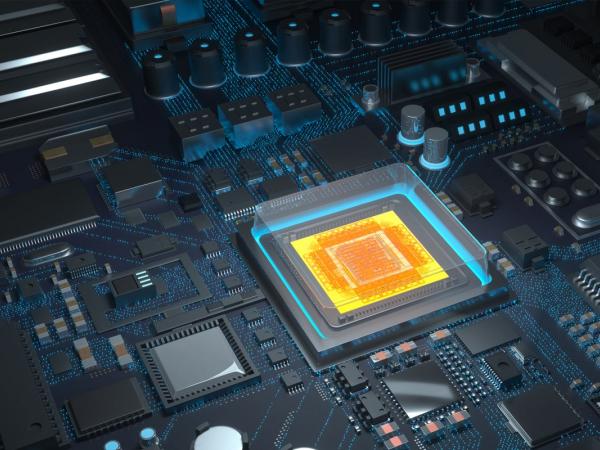James Wodarski
Federal District Court
- SRAM, LLC v. Princeton Carbon Works Inc., 9:21-cv-80581 (S.D. Fla) – Represented defendant Princeton CarbonWorks (PCW) in bet-the-company litigation, achieving a complete jury trial victory in the Southern District of Florida. SRAM, the second largest bicycle component manufacturer in the world, sued on two patents relating to high-end carbon fiber bike wheels and sought to put PCW out of business. After a two-week trial in February 2023, Mintz persuaded a nine-person jury to reach a defense verdict of no infringement on either patent, and no damages.
- Nanoco Technologies Ltd. v. Samsung Electronics Co., Ltd. et al, E.D. Tex, (2:20-cv-00038) - Successfully secured a $150 million settlement for Nanoco Technologies, Ltd., a British nanotechnology company and world leader in the development and manufacture of cadmium-free quantum dots and other nanomaterials. This settlement put an end to all global litigation between Nanoco and Samsung.
- Copan Italia SpA et al v. Puritan Medical Products Company LLC et al, 1:18-cv-00218 (D. Me) - Representing Copan Italia in asserting patent infringement and unfair competition claims against our client’s largest competitor, in a case involving the use of flocking technology (common in the textile industry) in the production of swabs to be used for the collection of biological specimen.
- New England Biolabs, et al. v. Enzymatics, Inc. (D. Mass, 1:12-cv-12125) – Defended Enzymatics against claims of trade secrets theft and patent infringement brought by three plaintiffs in a case involving nucleic acid ligands. Resulted in favorable settlement for our client.
- The Coca-Cola Company v. Johanna Foods, Inc. (N.D. Ga. 1:10-cv-03081) - Represented a major regional chilled-beverage supplier in defending design patent and trade dress infringement allegations by an international beverage supplier regarding clear plastic PET product packaging in the Northern District of Georgia. Case settled favorably.
- MEI, Inc. v. JCM American Corp., et al (DNJ 1:09-cv-00351) – Represented a bill validator supplier adverse to its principal competitor in the Federal District of New Jersey and in the Court of Appeals for the Federal Circuit regarding patents directed to antifraud technology.
- Netlist Inc. v. SK hynix Inc., et al., (W.D. Tex, 6:20-cv-194-ADA, 6:20-cv-525-ADA) - Represent plaintiff Netlist, Inc. in asserting three patents essential to JEDEC DDR4 RDIMM and LRDIMM standards against the Korean-based memory company, SK hynix in the Western District of Texas. Trial is scheduled for October of 2021.
Trade Secrets Litigation
- RoadRunner Recycling, Inc. v. Recycle Track Systems, Inc. et al, 3:23-cv-04804 (N.D. Cal.) – Defended clients Recycle Track Systems and RecycleSmart Solutions against California Uniform Trade Secret Act (CUTSA) and Defend Trade Secret Act (DTSA) causes of action in the Northern District of California in a suit brought by competitor RoadRunner Recycling related to waste metering technology. Obtained full defense verdict via summary judgment with respect to all of RoadRunner’s trade secret allegations.
- CellInfo, LLC v. American Tower Corporation, et al., (D. Mass., 18-cv-11250) & (AAA Case 01-21-0002-2206): After a weeklong arbitration hearing before the American Arbitration Association, achieved victory in favor of client American Tower “on every cause asserted against it” by the claimant, CellInfo LLC, after nearly five years of litigation that also included the District of Massachusetts and the First Circuit Court of Appeals. CellInfo alleged, among other things, trade secret misappropriation of software, which the Arbitrator ultimately rejected and ordered CellInfo to pay nearly $6 million in attorneys’ fees and costs to American Tower, the prevailing party under the operative contract.
- Railrunner N.A., Inc. v. Virgil E. Duncan and Duncan Family, LLC, et al., 00-3003 (Middlesex Superior Court) – Represented the plaintiff against its original founder and ousted-CEO in bringing a trade secret complaint related to the founder’s attempted use of trade secrets concerning to the company’s intermodal rail technology. It involved federal court/state court, and arbitration proceedings.
Federal Circuit Appeals
- Preservation Wellness Technologies LLC v. NextGen Healthcare Information Systems LLC, et al, 2016-2193, 2016-2194, 2016-2195 (Fed. Cir.) - Successfully argued at the Court of Appeals for the Federal Circuit to affirm an Eastern District of Texas ruling from May 2016 that held unpatentable a medical records patent asserted by Preservation Wellness against long-time client NextGen Healthcare. Mintz also argued on behalf of co-appellees Allscripts Healthcare Solutions Inc. and Epic Systems Corp. NextGen Healthcare provides electronic health record, financial, and health information exchange solutions for myriad healthcare organizations and the infringement allegations threatened “Patient Portal,” a key component of the company’s service.
- Straight Path IP Group, Inc. v. Sipnet EU S.R.O, 2015-1212, (Fed. Cir.) - Represented Straight Path IP in successfully appealing to the Court of Appeals of the Federal Circuit (CAFC) the adverse result of an inter partes review handled by another firm. The IPR decision canceled all challenged claims of Straight Path’s US Patent No. 6,108,704. In the Straight Path IP Group, Inc. v. Sipnet EU SRO appeal, the CAFC for the first time completely reversed an adverse IPR decision, remanding the matter for further proceedings under the correct construction advocated by Mintz and Straight Path.
International Trade Commission
- Certain Flocked Swabs, Products Containing Flocked Swabs, And Methods of Using Same (337-TA-1279) - Representing Copan Italia and Copan Industries as complainants in the International Trade Commission, asserting patent infringement claims against global competitors in a case involving the use of flocking technology (common in the textile industry) in the production of biological specimen collection swabs.
- Certain Thermoplastic-Encapsulated Electric Motors, Components Thereof, and Products and Vehicles Containing Same (337-TA-1052) – Represented complainant, owner of an innovative electric motor patents with wide applications in the automotive industry, in this ITC investigation and in related parallel Federal District Court cases.
- Certain Graphics Systems, Components Thereof, and Consumer Products Containing the Same (337-TA-1044) – Represented Advanced Micro Devices (AMD) as complainant in the ITC asserting patents covering graphics processing technology employed by smart devices such as televisions and handsets. Respondents include LG Electronics, VIZIO, MediaTek, and Sigma Designs, Inc. (SDI). Achieved settlement with LG prior to the conclusion of expert discovery. Following the evidentiary hearing, the presiding ALJ issued an initial determination finding a violation of Section 337 and recommending the imposition of an exclusion order against the remaining Respondents’ accused products. The ITC affirmed the ALJ’s finding of a violation on August 22, 2018. As a result, the Commission issued orders banning the importation of products made by VIZIO, MediaTek, and SDI and cease and desist orders against VIZIO and SDI.
- Certain Computing or Graphics Systems, Components Thereof, and Vehicles Containing Same (337-TA-984) – Represented owner of portfolio of graphics processing and microprocessor patents, Advanced Silicon Technologies, LLC, as Complainant in an ITC investigation adverse to a number of automotive manufacturers, and infotainment system and chip suppliers. Respondents include Honda, Toyota, BMW, Audi, Volkswagen, NVIDIA, Texas Instruments, Renesas, Harman International, and Fujitsu-Ten. The investigation instituted in January of 2016 and resolved favorably prior to the conclusion of expert discovery in August of 2016.
- Certain Communications or Computing Devices and Components Thereof (337-TA-925) – Represented owner of portfolio of communications and computing patents from former enterprise communications business unit of large multinational innovation company, Enterprise System Technologies, S.A.R.L. An ITC investigation was instituted in August 2014 as to respondent entities Apple, Samsung Electronics, LG Electronics and HTC Corporation. Google participated as an intervenor. The investigation resolved prior to evidentiary hearing in June of 2015.
- Certain Consumer Electronics with Display and Processing Capabilities (337-TA-884) - Represented owners of the patent portfolio of the original Silicon Graphics, now known as Graphics Properties Holdings, as complainant in the ITC. Investigation was instituted in June 2013 and among the respondent entities were Panasonic, Toshiba, Vizio, and ZTE. Most respondents settled. After an evidentiary hearing held over several days in May 2014, on August 29, 2014 Mintz successfully obtained a recommendation for a Limited Exclusion Order against the remaining respondent, which chose to settle while Commission review of the Administrative Law Judge’s Initial Determination was pending.
- Certain Consumer Electronics and Display Devices and Products Containing Same (337-TA-836) - Represented owners of the patent portfolio of the original Silicon Graphics, now known as Graphics Properties Holdings, as complainant in the ITC, and as plaintiff in multiple parallel District of Delaware cases. Cases were filed between late 2011 and early 2012, and all were resolved by the end of January 2013. The technology at issue relates to LCD panels, central processor units, graphics processing units, and other microprocessor technology. Successfully licensed all respondents, including some of the largest and most recognized names in the converged device space – Apple, LG, Research in Motion, Samsung, and Sony.
- Certain LED Photographic Lighting Devices and Components Thereof (337-TA-804) – Represented the complainant (plaintiff) that makes LED lighting systems for use in film and TV production, at the International Trade Commission. The ITC handed down its Final Initial Determination of infringement on September 7, 2012. On January 17, 2013, the ITC issued a General Exclusion Order (GEO) against respondents based in both China and the United States. The result in this case is particularly notable because it is rare for the ITC to issue a GEO due to the rigorous criteria and careful balancing of interests that apply to requests for GEOs.
- Certain Electronic Imaging Devices (337-TA-726) - Represented complainant in this three-patent ITC case. Filed in June 2010 against converged device manufacturers and focused on digital camera technology found in cell phones, laptop computers, and personal digital assistants, the matter was fully settled in April 2011. The result was successful licensing programs with three out of four respondents, among which are recognized leaders in the electronics device manufacturing space – HTC, LG, Research in Motion, and more.
- Certain Portable Communication Devices (337-TA-827) - Represented complainant in the ITC and as plaintiff in multiple parallel District of Delaware cases. Successfully licensed all respondents, including some of the largest and most recognized names in the converged device space – Amazon, LG, Motorola, Pantech Wireless, Research in Motion, Sony, and more. Cases were filed in December 2011 and settled in May 2012.
 Case Study
Case Study
Mintz represented private equity company The Gores Group in assessing and acquiring 1,400 US and foreign patents related to telecommunications infrastructure technology from Powerwave Technologies, which was then in bankruptcy proceedings, and selling the portfolio to Intel Corporation.
 Case Study
Case Study
Mintz helped patent prosecution client Glycosyn defend its exclusive patent rights against the company's largest competitor, a global company selling infringing ingredients used in baby formula.
 Case Study
Case Study
Mintz represents Advanced Micro Devices in enforcing its patent rights related to novel architectures for GPU circuitry. The ITC handed down a decision that VIZIO, MediaTek and Sigma Designs violated Section 337 of the Tariff Act and recommended certain products be excluded from import to the US.
 Case Study
Case Study
Mintz’s US Court of Appeals for the Federal Circuit win for NextGen affirmed a lower court’s dismissal of a patent infringement case targeting NextGen’s Patient Portal program. The appellate court affirmed that patents directed to longstanding methods of organizing human activity are unpatentable.
 Case Study
Case Study
Mintz secured a rare US Court of Appeals for the Federal Circuit ruling that entirely reversed a Patent Trial and Appeal Board decision. The PTAB had canceled each of the challenged claims of Straight Path IP Group’s patent for protocols for establishing communication links through a network.
 Case Study
Case Study
Mintz secured dismissal of an EDTX patent infringement case against NextGen Healthcare Information Systems that targeted NextGen’s Patient Portal program. The appellate court affirmed that patents directed to longstanding methods of organizing human activity are patent-ineligible subject matter.
 Case Study
Case Study
Mintz helped Enterprise Systems Technologies monetize a portfolio of more than 500 patents focused on enterprise telephony developed by Siemens AG. Mintz attorneys enforced four of the patents against integrated device companies. EST settled with Apple, Samsung, LG, and Google on favorable terms.


